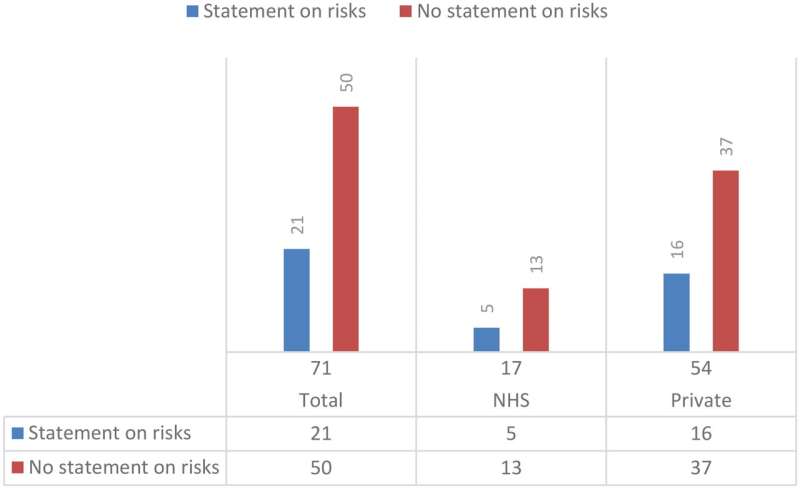UK study finds lack of compliance with consumer law guidance on fertility clinic websites

Earlier this year, revelations surfaced indicating that women who freeze their eggs are being misled by some U.K. clinics about their chances of having a baby. Now a recent investigation from Queen Mary University of London, sheds light on the disparities in information provision regarding Time-lapse Imaging (TLI) on U.K. fertility clinic websites.
Published in Human Fertility, the study, led by Dr. Manuela Perrotta of Queen Mary University of London's School of Business and Management, scrutinized 106 fertility clinic websites to evaluate the clarity, accuracy, and quality of information pertaining to TLI.
The findings reveal significant discrepancies:
- Misrepresentation of Costs: While 67% of the clinics claimed to offer TLI, the study found disparities in cost disclosure. Approximately 29.6% of websites omitted pricing entirely, while others ranged from £300 to £850, with 35.8% disclosing costs.
- Questionable Claims: Despite current evidence assessments showing no difference, a staggering 90.1% of the websites made claims or implied TLI's superiority in improving clinical outcomes through enhanced embryo selection.
- Lack of Regulatory Information: Alarmingly, almost half (47.9%) of the websites failed to mention or provide links to the Human Fertilization and Embryology Authority (HFEA) rating system, vital for patients' decision-making process.
Dr. Manuela Perrotta emphasized the critical importance of providing patients with clear, accurate, and transparent information. "In a sector where patients bear significant financial responsibilities, ensuring they can make fully informed decisions about fertility treatment is imperative," she stated.
In the era of rapidly advancing fertility treatments, ensuring patients receive accurate and transparent information is paramount. The study underscores the pressing need for greater transparency and accountability within the fertility industry.
As fertility clinic websites serve as the primary source of information for patients, the findings raise concerns about the reliability and accuracy of the information presented.
More information: Manuela Perrotta et al, Analysing adherence to guidelines for time-lapse imaging information on UK fertility clinic websites, Human Fertility (2024). DOI: 10.1080/14647273.2024.2346595
No comments:
Post a Comment